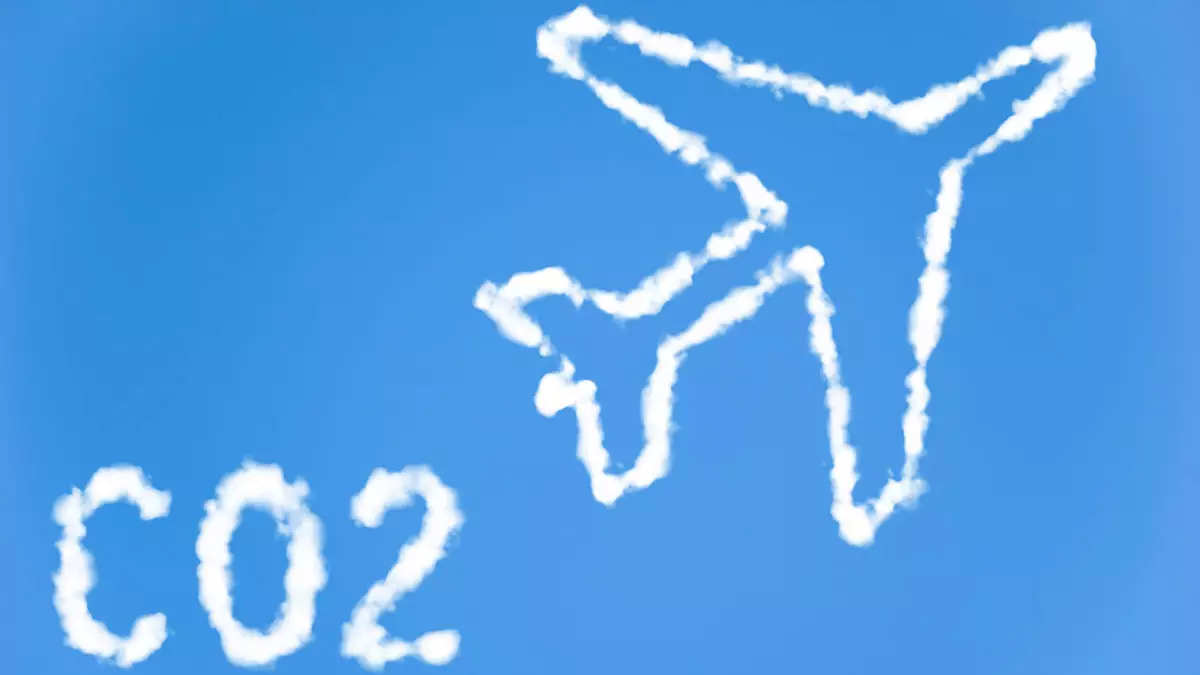As the United Nations’ aviation arm announced a goal of reducing aviation emissions globally by 5% by 2030, the airline industry leaders expressed doubt about the feasibility of this target. Willie Walsh, the director general of IATA, highlighted the lack of sustainable aviation fuel (SAF) production in certain regions, such as South America. This raised concerns about the industry’s ability to achieve the set emissions reduction goal. The aviation industry has committed to achieving net-zero emissions by 2050, with SAF projected to account for the majority of carbon reduction efforts. Despite these commitments, there are challenges that need to be addressed to meet these ambitious targets.
One of the primary challenges in meeting the emission reduction goals is the limited production capacity of sustainable aviation fuel. While global SAF production is expected to triple this year, it still only accounts for 0.5% of the aviation industry’s fuel needs. IATA’s downward revision of its 2030 SAF production estimate indicates that there are significant hurdles to overcome. With only 3% of renewable fuel production capacity accounted for by SAF, there is a pressing need to accelerate production to meet the targets set by ICAO. The industry’s reliance on other technologies, such as renewable diesel, further complicates the efforts to scale up SAF production.
The industry’s inability to meet the emission reduction targets has led to conflicts and criticisms among stakeholders. While governments are called upon to invest more in SAF and incentivize production, fuel producers are also under scrutiny for their lack of commitment. During a panel discussion, the trade group IATA called out TotalEnergies for not doing enough to support SAF production, citing the significant gap between the company’s profits and its investments in renewable fuels. In response, TotalEnergies defended its efforts, stating that it is spending hundreds of millions on SAF as part of a larger investment in renewable fuels. This exchange highlights the tensions within the industry regarding the responsibility for promoting sustainable aviation.
One of the key obstacles to scaling up SAF production is the cost associated with sustainable aviation fuel. Airlines are currently paying a premium of two to five times more for SAF compared to conventional jet fuel. This cost disparity makes it challenging for airlines like Qantas to justify investing in green fuel. Passing on the increased costs of SAF to consumers would make air travel less affordable, jeopardizing the accessibility of flying for the general public. The reluctance of major energy producers, whose portfolios are heavily reliant on road transport fuels, to prioritize SAF production further complicates the industry’s transition to sustainable aviation practices.
The aviation industry faces significant challenges in meeting the emission reduction targets set by international organizations. The limitations in sustainable aviation fuel production, conflicts among stakeholders, and cost implications pose obstacles to achieving net-zero emissions by 2050. Addressing these challenges requires collaborative efforts from governments, fuel producers, and airlines to drive innovation and investment in sustainable aviation solutions. Despite the complexities involved, the industry must prioritize sustainability to mitigate the environmental impact of air travel and pave the way for a greener future.


Leave a Reply